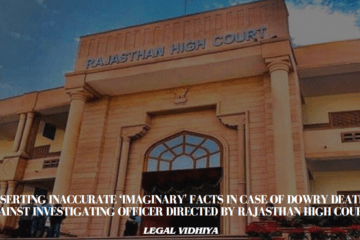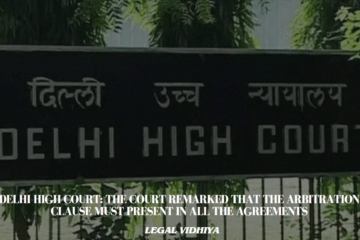
The Bombay High Court: In a recent judgment has emphasized on the importance of providing detailed reasons and considerations in disciplinary orders, stating that non-speaking orders and unexplained delays can diminish the deterrent effect of the penalty.
The dispute revolved around the challenge of an order passed by the Maharashtra Administrative Tribunal, Mumbai (Tribunal) dated 16th February 2015 for the penalty of compulsory retirement imposed upon the respondent, Prabha Krishnaji Kamble, as a warden at a government girls’ hostel.
The bench comprising of Justices A.S. Chandurkar and Jitendra Jain found that the penalty of compulsory retirement imposed upon the respondent was disproportionate. While criticizing the delay of 30 years in the disciplinary proceedings, the court stated that such long unexplained delay in proceedings would result in the proceedings being held to be “bad in law.”
While further emphasizing the principles of natural justice and the importance of providing detailed reasons to impose penalties, it criticized the non-speaking order passed by the disciplinary authority to merely replicate the findings of the report of the inquiry officer before the revision petition, without the considerations of the detailed submissions of the respondent. The judgment referred to provisions of the Maharashtra Civil Services (Disciplinary and Appeal) Rules, 1979, which require the disciplinary authority to provide detailed reasons for imposing penalties and complete proceedings in adjudicating disciplinary matters, citing the order of the previous magistrate as a factor to test the reasoning of the Tribunal’s decisions being questioned.
While advocating for the importance of providing detailed reasons in order to maintain the deterrent effect of penalties and provide adequate justice to parties, the court also referred to Ram Lal v. State of Rajasthan and considered this very order in adjudication of the disciplinary proceedings.
Therefore, underscoring the critical need for meticulous adherence to the principles of natural justice and the provisions demanding detailed reasoning in disciplinary orders, and critiquing non-speaking orders and unexplained delays, the court reaffirms the significance of transparency and fairness in upholding the integrity of disciplinary proceedings.
CASE NAME:
The State of Maharashtra through the principal secretary and Anr V. Smt Prabha Krishnaji Kamble
NAME: SREENISHANKA VADIRAJ, BBA-LLB(HONS)PES UNIVERSITY, BANGALORE, INTERN UNDER LEGAL VIDHIYA.
Disclaimer: The materials provided herein are intended solely for informational purposes. Accessing or using the site or the materials does not establish an attorney-client relationship. The information presented on this site is not to be construed as legal or professional advice, and it should not be relied upon for such purposes or used as a substitute for advice from a licensed attorney in your state. Additionally, the viewpoint presented by the author is of a personal nature.




0 Comments